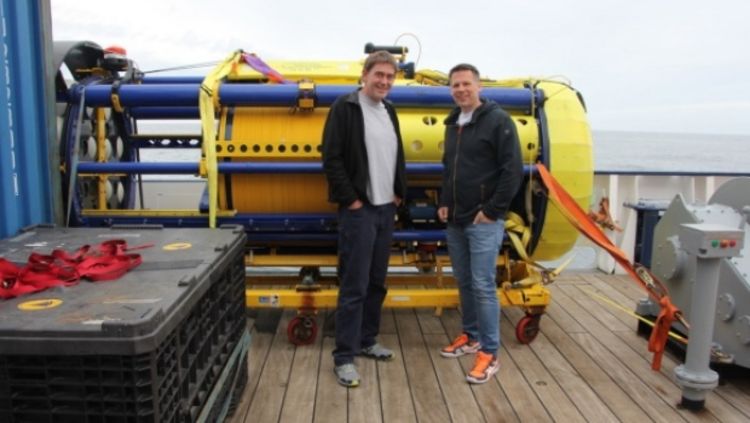More than a year after deployment, the SeaCycler, a prototypic and technically sophisticated marine sensor device, was fished up by the German research vessel Maria S. Merian from the Labrador Sea – much to the delight of scientists from Canada (Dalhousie University and Bedford Institute of Oceanography (BIO)), Germany (ICBM) and the US (Scripps Institution of Oceanography, La Jolla).
„It’s the only one of its kind in the world so it is a very unique machine and we are happy to have it back in perfect condition,“ said Doug Wallace, a Dalhousie University oceanography professor on request by a CBC-Journalist. The hi-tech device carries more than 29 detectors for oxygen, carbon dioxide, several nutrients, salinity and temperature. Moored 150 meters below the ocean surface, a computer driven winch lets the prototype out to go up and pulls it back in to go down. On its way to the sea surface the SeaCycler collects data and, during its stay on the surface, transmits them to a satellite.
More



![[Translate to English:]](/f/5/_processed_/3/2/csm_ICBM-Logo-transparent-_91fe1c6774.png)
